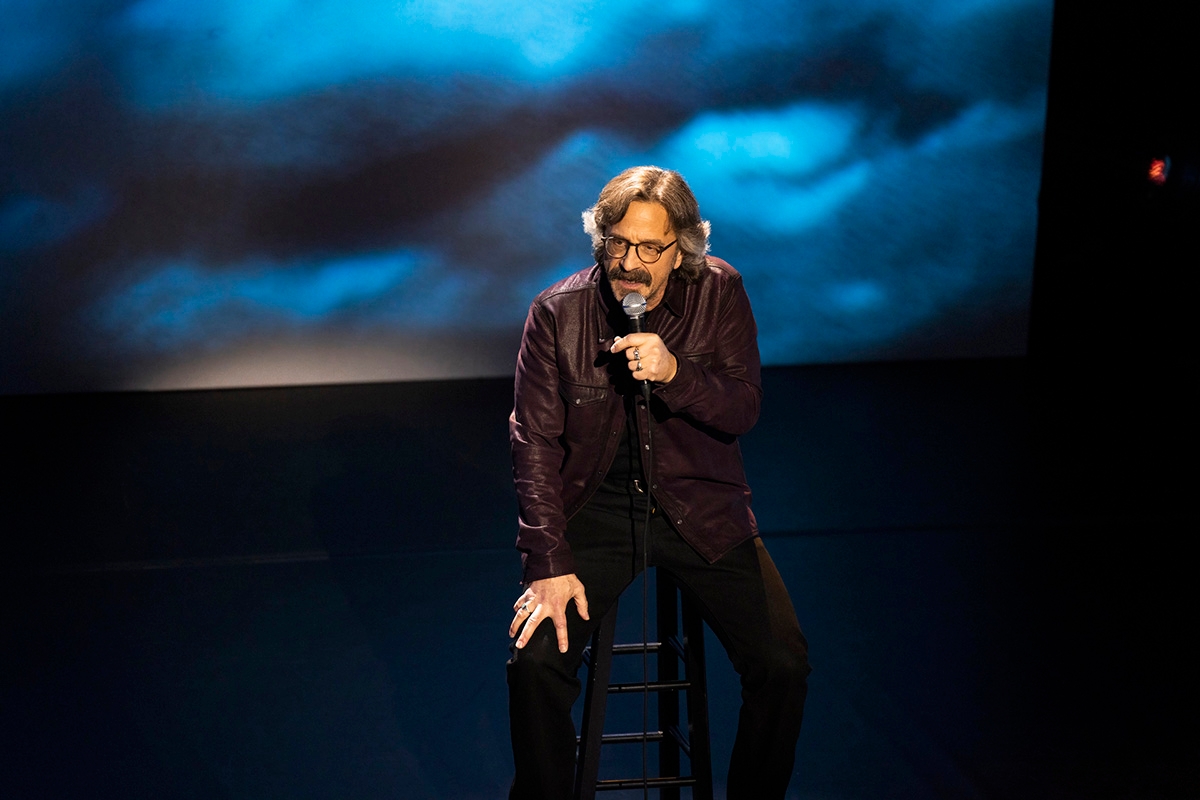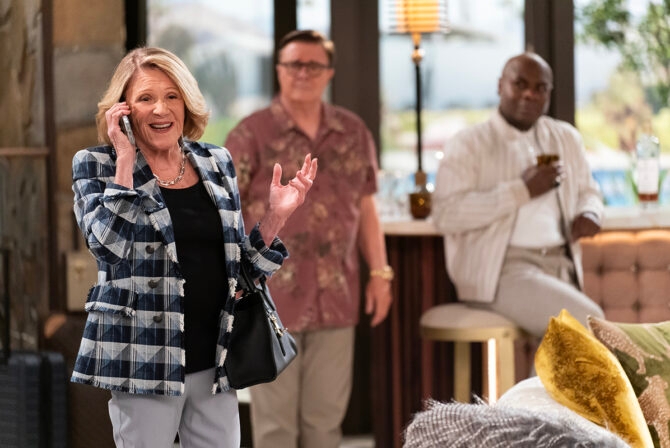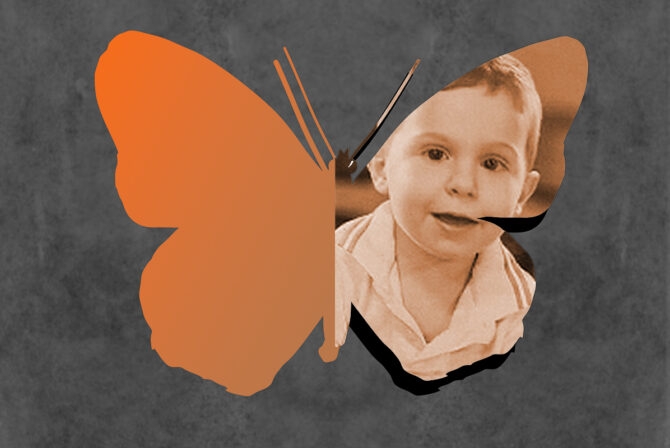“I’m not religious, I’m a Jew,” comedian, actor, and hit-podcaster Marc Maron says in his newest HBO comedy special, “From Bleak to Dark.”
It’s the perfect encapsulation of so many Jews in this country, but especially of Maron’s — who has his own, undeniable and much beloved brand of Yiddishkeit. Maron says that in his comedy, he “just keeps poking the Jew thing just so that people who think they have nothing against Jews will say, ‘we fucking get it, man.'” It’s a very relatable compulsion for many a-Jew in a non-Jewish spaces, as well — our own Jewishness is so integral that we can’t stop picking at it.
And picking at it is something that Maron just does so well. For a non-religious Jew, he describes the relationship between Jews and God, Jews and comedy, Jews and grief, Jews and generational trauma, and Jews and gentiles, with such funny, and accurate specificities, which make “From Bleak to Dark” is a surprisingly uplifting for comedy special. That’s despite the fact that it delves into the loss of his partner, his father’s dementia, the pandemic, Christian hegemony, Roe V. Wade, cancel culture and antisemitism, which he jokes is something that “brings most people together.”
“I’m saying that as a Jew and as a Jew, I am saying, we will replace you,” he continues, “there’s an app now, we can replace you with, it’s a commission thing,” he says, mocking popular antisemitic conspiracy theory made into that chilling Charlottesville chant.
“From Bleak to Dark” is Maron’s first special since the death of his partner, Lynn Shelton, from leukemia back in May of 2020, and he talks a lot about his grief — and how Jewish customs, and ideas, helped him process it.
In fact, when considering how to work through his grief, the actor known for “G.L.O.W” and “Maron” (both of which were partly directed by Shelton), reveals that he considered doing a Jewish-themed one man show called “Marc Maron’s Kaddish” — referring of course, to the Mourner’s Kaddish, a quintessential part of the Jewish mourning ritual. He then starts acting it out on stage, saying that it will start with Israeli music, and then he starts singing the first two words of the Jewish mourner’s prayer — “yitgadal veyitkadash”.
“It definitely wasn’t funny,” and “I’m not Jewish so i missed half the references” he imagines a potential critic saying. (I assume everyone reading this piece would so watch it.)
Yet in an off-handed moment of seriousness (and there are many, wonderfully profound such moments, to balance Maron’s jokes), Maron relays that one Jewish line that helped him through grieving Shelton was that Jewish line of condolences — “may her memory be a blessing.” And bagels. Bagels helped too.
Maron also mused about the profoundly Jewish habit of finding humor in life’s darkest crevices. “I believe there were probably were some hilarious people in Auschwitz,” he tells a mildly horrified crowd, only to defend himself with a — “they were all Jews!” He imagines nights in the barracks of the concentration camp in which prisoners gather around to watch imitations of Nazis and write joke books that could never be published (“The Auschwitz Joke Book” would most likely be misunderstood as a title, he rightly asserts.)
Maron also talks about fatherhood — his own father, who was recently diagnosed with dementia, their complex relationship, and his (perhaps related) own lack of fatherhood — which he is not at all regretful about.
While he knows that some people have children out of an innate kind of love, he says that some have it to fill “that weird void where your heart should be,” but says that unfortunately, for those doing that — “that void will be passed along for generations.”
“You can now track your void on 23andme,” he jokes, saying his “originated in the chest of a tailor’s wife in Belarus in the 1850s, it’s a 99.9% Ashkenazi void and you’ve all been seeing with it for an hour now.”
And sitting with that 99.9% Ashkenazi void? It is truly a pleasure. “From Bleak to Dark” is a super Jewish, super masterful, and super affirming must-watch.








